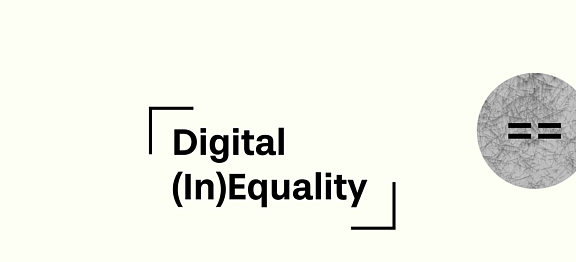
Digital (In)Equality

Scholarly explorations of digital inequality, on the one hand, and of efforts to achieve equality through digital means, on the other, emerge from distinct disciplinary traditions and methods. Bringing these approaches into closer dialogue, this special theme year takes up the relationship between digital inequality and digital equality. Scholars collaborating in the theme seminar explore the paradoxes of digital (in)equality in different historical and social contexts. The seminar considers such questions as: In what ways are digital equality and digital inequality co-constituted? What forms does digital inequality take? How do digital technologies shape, enable, or constrain gender or racial equality and inequities? What is the relationship between algorithmic bias and digital inequality? How should scholars apprehend the exacerbated harms, concentrated wealth, and consolidated power that have characterized society after the digital turn? How do digital technologies expand and limit the exercise of rights claims and the possibilities for civic participation? Do digitally enabled equality efforts enhance democracy, civil liberties, and freedom? Do they expand equity or justice?
This seminar meets at a crucial juncture. Digital technologies organize, channel, constrain and amplify the distribution of goods, services, and opportunities across societies. Early digital scholarship accordingly attended to the lack of access to technology. It centered the so-called “digital divide”—defined at various points as lack of access to the personal computer and then broadband—and consequent disparities in educational achievement, employment opportunities, creative endeavor, knowledge production, civic participation, and more among communities, countries, and nations. It also heralded the possibility of new liberatory networked communities and modes of being based on this small set of networked digital tools.
Today, the digital ecosystem is more expansive and encompasses, at least, the internet, social media, platforms, and artificial intelligence, with the vectors of technologically mediated or constructed inequality spanning all facets of global society. Can we take the model of earlier scholarship and return to the equality-enhancing promise of the digital, including possibilities for expanding personal freedoms, supporting social mobility, and amplifying political voice? Or, do the affordances of digital technologies inherently compromise their utility for advocacy and activism for novel forms of governance and political practice, and for new possibilities for community-building and democratic action?
Digital (In)Equality is convened by Alondra Nelson, Harold F. Linder Professor in the School of Social Science.
Photos all Creative Commons 2.0 license. Credits: WOCintechchat.com (left), ufcw770 (center), and Wonderlane (right).